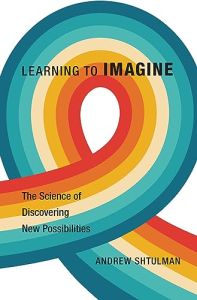Join getAbstract to access the summary!

Join getAbstract to access the summary!
Andrew Shtulman
Learning to Imagine
The Science of Discovering New Possibilities
Harvard UP, 2023
What's inside?
This counterintuitive look at imagination and curiosity might make you rethink what you know about innovation.
Recommendation
Cognitive developmental psychologist Andrew Shtulman dispels the myth that children are masters of imagination. He argues that imagination develops through education, practice and thoughtful reflection. It’s a buildable skill more than an innate quality, and certainly one that does not languish with age. Shtulman shows that children tend to imitate more than innovate. His scholarly treatise explains that people of all ages can enhance their imagination and creative abilities by learning from examples and applying principles and models from various fields, such as mathematics, literature and religion.
Summary
About the Author
Andrew Shtulman is a cognitive developmental psychologist renowned for his research on conceptual development and change, especially in science education.



















Comment on this summary